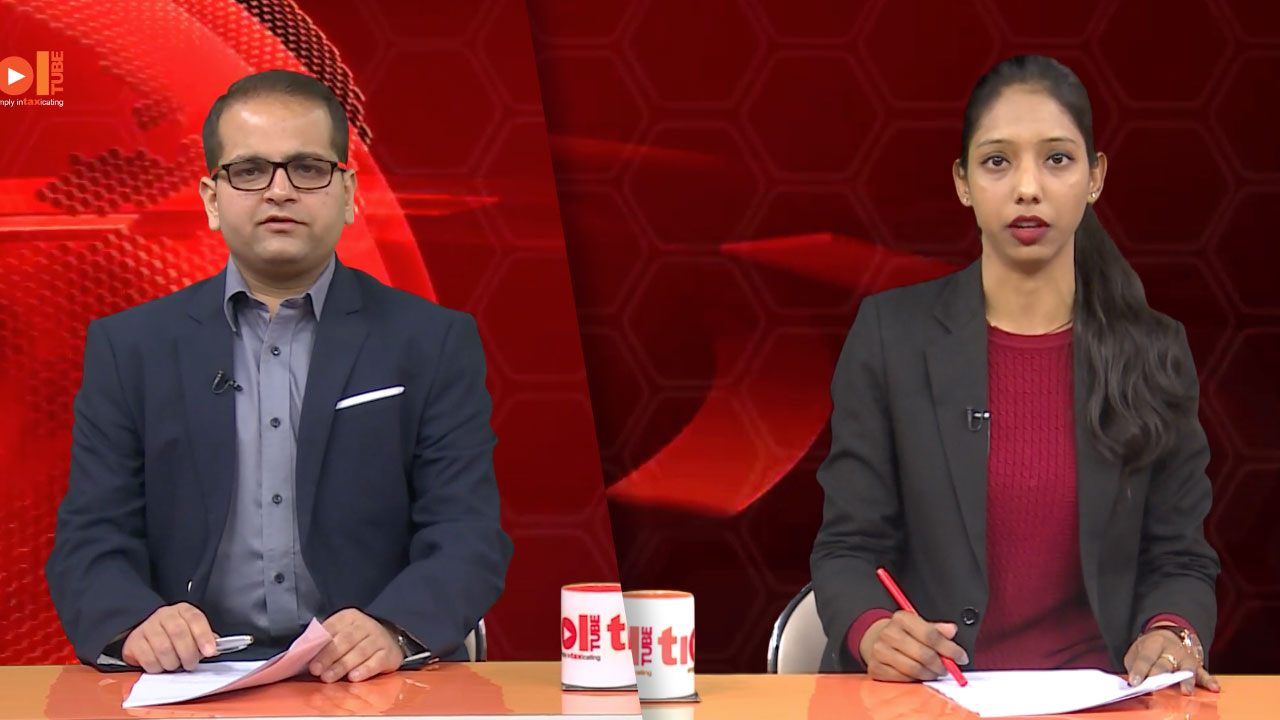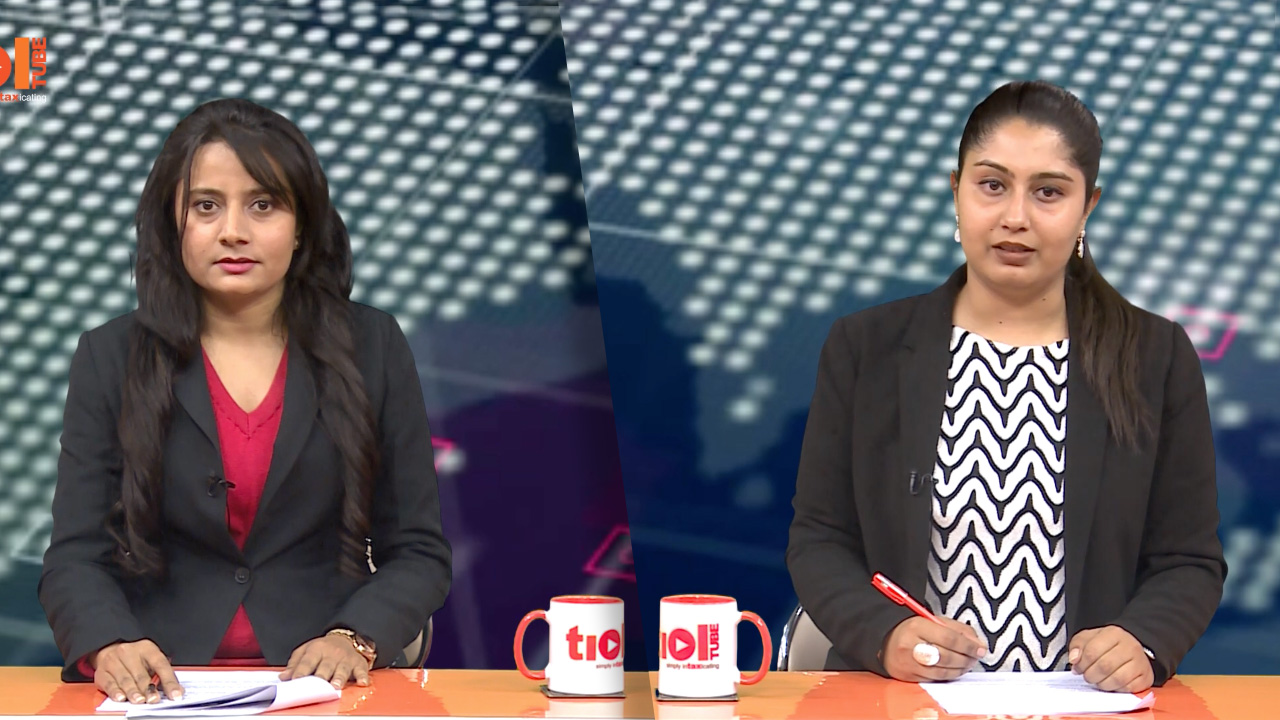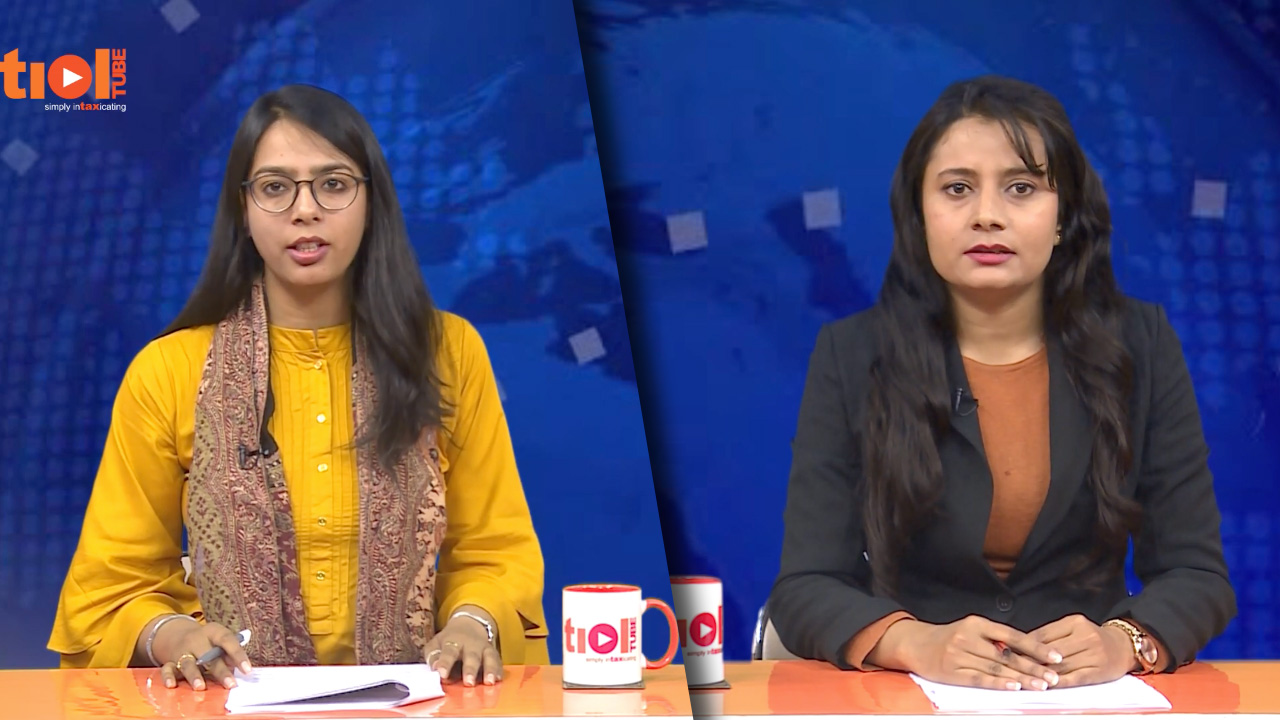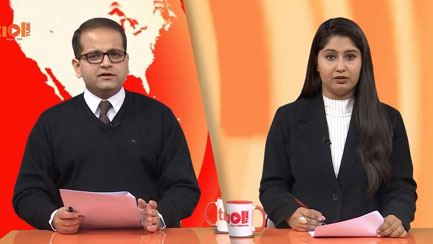|
SERVICE TAX
2019-TIOL-757-CESTAT-ALL
UP State Handloom Corporation Ltd Vs CCE & ST
ST - The appellant is a State Government company - During the period of dispute, the appellant rented certain shops which belong to itself - The appellant also allowed certain people to keep their goods in the rented shop for further sale - The first activity was sought to be taxed under 'Renting of Immovable Property service' whereas the second service was sought to be taxed under 'Business Support Service' - Duty demands were raised for the relevant periods, upon invoking extended period of limitation to impose equivalent amount of penalty - Such demands were confirmed by the Commr.(A).
Held - An identical issue stands resolved in the case of Krishi Utpadan Mandi Samiti - Following the findings laid out therein, it becomes clear that extended period cannot be invoked against a statutory body - No contumacious conduct or suppression of facts can be attributed to it - Hence the duty demand raised is barred by limitation - However, the adjudicating authority is directed to calculate the quantum of demand falling under normal period of limitation, if any - The same may be demanded with interest: CESTAT (Para 2,5,6)
- Assessee's appeal partly allowed: ALLAHABAD CESTAT
2019-TIOL-756-CESTAT-MUM
Jsw Salav Steel Ltd Vs CCE, C & ST
ST - The Revenue raised duty demands against the assessee-company during the relevant AY, u/s 66A of the Finance Act 1994 - The Revenue noted that the appellant entered into an agreement with an entity based abroad for upgrading its manufacturing facility, along with supply of a module - Hence the Revenue alleged that the appellant had received Intellectual Property Service, taxable u/s 65(105)(zzr) - Duty demands were raised with interest & penalties were imposed u/s 77 & 78 of the Finance Act 1994 - The appellant remitted an amount under protest, pertaining to royalty paid - Such amount was appropriated - Thus the present appeal.
Held: It appears that the adjudicating authority applied the provisions of Section 66A of the Finance Act, without ascertaining if the amount paid for the activity in question, actually is consideration for a taxable service - Section 66A deems the recipient of a taxable service to be the provider to fasten the obligation to discharge tax - The taxable services not covered by the first two groupings in Rule 3 of Taxation of Services (Provided from Outside India and Received in India) Rules, 2006 deems service to have been brought within India when the recipient is located in India - Hence, it is a residuary clubbing which does not mention any specific services - But then these Rules were notified as per Section 93 of Finance Act 1994, which enables the Central Govt to exempt taxable services from levy of service tax - Hence, those transactions not amenable to inclusion as provision of services from outside to India are to be considered as exempt - It is seen that the nature of the intellectual property and its enforceability have not been touched upon in the SCN - There is no provision in the statute which deems the recipient to be the possessor of the intellectual property - To deem the deemed possessor of the intellectual property be in temporary possession even if the deeming as provider would go hand-in-hand with permanent possession, is an incorrect approach, seemingly adopted merely to fasten tax liability - Hence the crystalisation of the tax liability on the appellant is untenable: CESTAT (Para 2,5,6,7)
- Assessee's appeal allowed: MUMBAI CESTAT
CENTRAL EXCISE 2019-TIOL-755-CESTAT-CHD
Bharat Petroleum Company Ltd Vs CCE
CX - The assessee is in appeal against impugned order wherein duty has been demanded from assessee on account of return of empty vehicles after delivering goods up to the buyers - After taking note of the fact of decision taken by Tribunal in case of Haldia Petrochemicals Ltd - 2009-TIOL-360-CESTAT-KOL which has been affirmed by Apex Court, Revenue issued another Circular 923/13/2010-CX wherein the Circular dt. 01.07.2002 was withdrawn and it has been clarified that cost of return fare of the empty vehicles is not required to be added in assessable value of goods supplied by assessee - As the issue has already been settled by Apex Court and clarified by Revenue vide Circular dt. 19.05.2010, the demand against assessee on account of inclusion of freight charges on return fare of empty vehicles is not sustainable: CESTAT
- Appeal allowed: CHANDIGARH CESTAT
2019-TIOL-754-CESTAT-AHM
ONGC LTD Vs CCE & ST
CX - The assessee is engaged in manufacture of various petroleum products - During manufacture of LPG, certain bottom end products are produced which the assessee have sought to classify as 'Naptha' under Chapter sub heading head 2710.14 (prior to 01.03.2005) and under sub heading no. 2710 11.19 (after 01.03.2005) - Revenue has sought to classify Naptha as "Other Special Boiling Point Spirits" under Chapter sub heading 2710.13 (prior to 01.03.2005) and under heading 2710 11 13 (after 01.03.2005) - Identical case has been decided by Tribunal in case of Bharat Petroleum Corporation Ltd - 2018-TIOL-1275-CESTAT-MUM - In said decision also, the issue in dispute was whether Naphtha can be classified as a 'motor spirit' - The evidence was a test reports undertaken that temperature for 5% recovery by volume and temperature be 90% recovery fell in range prescribed for SBPS - However, in said case, no test was done for suitability of use of product either by itself or with any other substance as fuel in spark ignition engine - In this case, said test has been conducted - Thus, even though the products answered to definition of 'Special Boiling Points', it was not classified under heading 2710.13 (prior to 01.03.2005) and under heading 2710 11 12 to 2710 11 19 (after 01.03.2005) because it did not fall under the definition of 'Motor Spirit' - Thus, to qualify as Motor spirit two very specific tests have to be followed - In respect of testing for possibilities of use in admixture with other substances 'Motor Spirit' is concerned - The Tribunal in case of Oil India Corporation Ltd. - 2002-TIOL-123-CESTAT-DEL deals with both tariffs that is, prior to introduction of HSN based tariff and also the period after that - It is apparent that for a product to fall under heading 2710.14, (prior to 1.2.2005) and under heading 2710 11 13 (01.03.2005) the product needs to answer to the definition of motor spirit - In this regard, impugned order seeks to differentiate the said decision in case of IOCL & Oil India on the ground that the Tariff on the material time was different - Testing in admixture with any other substance other than mineral oil, has not been carried out, therefore, there is no evidence to hold that the product answers to description 'Motor Spirits' and therefore, would be classifiable under heading 2710.14 (prior to 01.03.05) and heading 2710 11 13 (after 01.03.2005) - Revenue has failed to establish that product in question is classifiable as 'Motor Spirit' under the description of single dash heading of motor spirits(prior to 01.03.2005) and triple dash (after 01.03.2005): CESTAT
- Appeals allowed: AHMEDABAD CESTAT
2019-TIOL-753-CESTAT-KOL
Sundaram Steel Pvt Ltd Vs CCE & ST
CX - The assessee is engaged in manufacturing of Sponge Iron - A SCN was issued alleging that assessee had contravened the provision of Rules 2 & 3 (5B) of CCR, 2004 inasmuchas they failed to reverse Cenvat Credit attributable to Coal and Iron Ore Fines on which the assessee had taken credit of CVD and Service Tax paid on inward freight, which were not utilized in or in relation to manufacture of excisable final products - Regarding first issue of loss of inputs due to cyclone, the details of input lost by cyclone were duly furnished by assessee in Stock Register of inputs and also the periodic returns filed with the Department - Accordingly, credit availed on inputs destroyed in natural calamity including cyclone, need not be reversed as it does not amount to removal of input as such - Inputs lost during the process of manufacture are not required to be considered for reversal of credit.
Regarding H.R. coils used in manufacture of capital goods, Tribunal in assessee's own case has allowed the credit on H.R. Coils used in manufacture of capital goods - The assessee had furnished details of input (H.R. Coils) used in manufacture of Klin/Stroage Tank - Therefore, there is no reason to disallow Cenvat Credit availed on H.R. Coil used in the manufacture of capital goods.
Regarding Cenvat Credit of input service on basis of STTG Certificates, a total sum was claimed by assessee as Cenvat Credit on the basis of STTG Certificate - The Adjudicating Authority allowed the credit in all the cases except for Rs.66,668/- for want of the original copy of STTG Certificate which was not available with the assessee in spite of his best efforts in obtaining the same from the South Eastern Railway Authorities - However, the Chief Commercial Manager of South Eastern Railway, Kolkata has issued statement of Service Tax for the month of August 2014, mentioning the name of the assessee as consignee wherein the amount of Service Tax of Rs.66,668/- has been detailed - The said statement has been filed by the Consultant in the course of hearing and placed on record - Considering the available document as valid and sufficient proof for availing Cenvat Credit, no reason found to hold an adverse view: CESTAT
- Appeal allowed: KOLKATA CESTAT
CUSTOMS
2019-TIOL-762-CESTAT-MUM + Case Story
Ircon International Ltd Vs CC
Cus - Imports were effected of "Rotary piling rig R-625 serial no. 2553 and its accessories" by the appellant-importer after being awarded the contract for ‘six laning' of Panchi Gujaran to Panipat section of National Highway no. 1 in Haryana - Imported goods had been sent to Patna for executing a project pertaining to construction of ‘rail over bridge' as the site for ‘six laning' had not been made available for commencement of execution of the contract awarded to them - Benefit of exemption notification 21/2002-Cus [Sr. no. 230] denied on the ground that the importer had failed to deploy the imported equipment on the project for which the goods were claimed to have been imported, confiscation ordered with option to redeem goods on payment of redemption fine; Customs duty demand confirmed and equivalent penalty imposed along with penalties on Deputy General Manager and on M/s Batliboi Impex Ltd and National Highway Authority of India - appeal to CESTAT.
Held: Rail over bridge connects and continues the road itself, save that it is not constructed on level ground but rests on supports - pre-importation condition entitles the importer to availment of the exemption while the post-importation condition mandates performance and these are mutually exclusive conditions - appellant was prevented from executing the project at Panipat for want of the project site being made available to them - the pre-importation condition, which is neither included in the undertaking for continuing obligation under the notification nor mandated to be so in the notification, cannot be held to have been deniable after the eligibility was determined at the threshold - post-importation deployment does not necessarily have to relate to contracts that confer eligibility at the threshold - girders connect both ends and other structures are essential to the execution does not derogate from the essential purpose of being a road connectivity - exemption under notification no. 21/2002-Cus [Serial no. 230, List 18] in respect of import of "Rotary piling rig R-625 serial no. 2553 and its accessories" has been correctly availed and there is no cause for denial of the same and demanding Customs duty by invoking section 28 of the Customs Act, 1962 and/or section 111 of the Customs Act, 1962 - impugned order set aside and appeals allowed: CESTAT [para 5 to 9]
Appeals allowed: MUMBAI CESTAT
2019-TIOL-752-CESTAT-BANG
CC Vs Cotton World Exports
Cus - Assessee have not filed any appeal against the order holding goods liable for confiscation and demand for duty drawback claimed by them and disallowed by Commissioner - Revenue submits that once, the order holding liability to confiscation under Section 113 has been made by Commissioner, penalty under Section 114 should follow - In appeal memo filed by Revenue, no ground substantiating the imposition of penalty under Section 114 has been put forth - In the present case, Commissioner has imposed penalty of Rs.70,00,000/- on the assessee under Section 114AA - Since penalty has already been imposed under Section 114AA, no merit found in proposed penalty under Section 114 at this stage: CESTAT
- Appeal dismissed: BANGALORE CESTAT |




 By Vijay Kumar
By Vijay Kumar 



